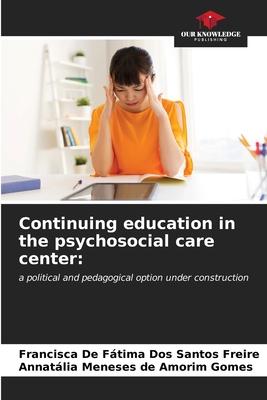Permanent Health Education is a powerful strategy for the development of health education actions within the SUS, instigating reflection on the scenarios in which professionals work. This study aims to analyze Permanent Health Education and its relationship with the development of comprehensive care at the Psychosocial Care Center, from the perspective of the workers. This is a descriptive and analytical study with a qualitative approach. The speeches were audiotaped in full with the prior authorization of the participants and respecting anonymity, the ethical principles recommended by Resolution 466/12 of the National Health Council and CONEP (National Research Ethics Committee). Minayo’s (2010) thematic analysis was used and the following categories were drawn up: Conceptions and actions of permanent education in the Crateús CAPS; the second category: Humanization and Integrality of care, redesigning history and the third category: Challenges and possibilities of Permanent Education in the CAPS. The study brought to light the need for continuing education to strengthen the humanization policy, from the perspective of comprehensive care in care and management.
| FindBook |
|
有 1 項符合
Dos Santos Freire的圖書 |
 |
$ 2365 | Continuing education in the psychosocial care center
作者:Dos Santos Freire 出版社:Our Knowledge Publishing 出版日期:2023-11-12 語言:英文 規格:平裝 / 64頁 / 22.86 x 15.24 x 0.38 cm / 普通級/ 初版  看圖書介紹 看圖書介紹
|
|
|
圖書介紹 - 資料來源:博客來 評分:
圖書名稱:Continuing education in the psychosocial care center
|











